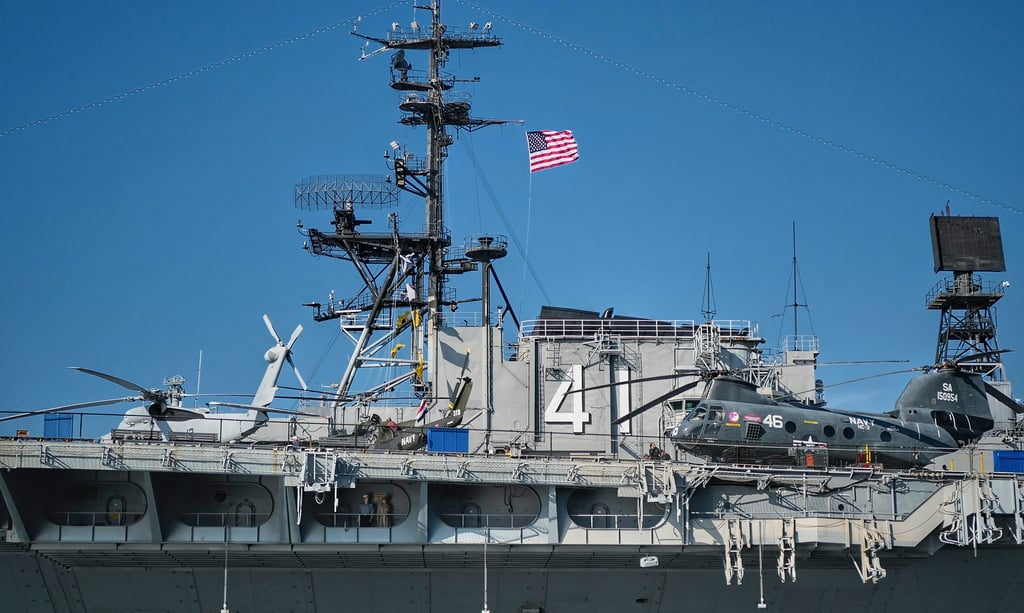Trump’s Urgency for an Iran Nuclear Deal Faces Rising Risk of Military Confrontation
POLITICS


Shift in U.S.-Iran Nuclear Talks and Rising Tensions
Oil prices surged amid escalating geopolitical concerns as U.S. President Donald Trump expressed increasing pessimism over the prospects of a nuclear agreement with Iran, announcing the withdrawal of some American personnel from the Middle East. This marks a dramatic shift from earlier rounds of indirect talks, which had been described by both sides as “positive” and “respectful.”
The Trump administration and Tehran have publicly affirmed their desire for a deal: Trump seeking a diplomatic victory not achieved under the Biden administration, and Iran aiming for relief from crippling sanctions. However, the likelihood of reaching an agreement now appears remote.
Troop Withdrawal and Rising Military Risks
On Wednesday, Trump stated that U.S. military personnel are being pulled back from potentially dangerous areas, with the Pentagon ordering withdrawals from embassies in Baghdad, Kuwait, and Bahrain. Speaking on a podcast, Trump accused Iran of “delaying” negotiations and admitted his confidence in the talks has diminished compared to a few months prior.
Tehran, in turn, has criticized Washington’s seriousness and its refusal to acknowledge Iran’s right to uranium enrichment for peaceful purposes. Iran’s defense minister warned that any military action could provoke retaliation targeting all U.S. bases in the region, emphasizing Iran’s ability and willingness to strike without hesitation.
International Atomic Energy Agency (IAEA) and Israel’s Concerns
The IAEA Board of Governors recently declared Iran noncompliant with nuclear safeguards for the first time in nearly 20 years, signaling growing international alarm. Meanwhile, Israel is reportedly contemplating military action against Iran in the near term, further heightening regional tensions.
The potential consequences of a military conflict involving Iran — a nation of approximately 93 million people, nearly four times the size of Iraq — could be profound, affecting global markets and geopolitical stability. Nonetheless, some analysts believe a direct confrontation might be avoided temporarily, interpreting recent troop withdrawals as strategic pressure ahead of continued negotiations.
Core Impasse: Uranium Enrichment
The central obstacle to a deal remains Iran’s uranium enrichment program. Uranium enrichment is necessary for civilian nuclear energy but also enables nuclear weapons development. While the Obama-era 2015 nuclear deal (JCPOA) capped uranium enrichment at 3.67% purity, Iran has since enriched uranium up to 60%, a level alarmingly close to weapons-grade purity of 90%.
Trump initially showed some willingness to accept limited low-level enrichment but later insisted on zero enrichment — a demand that Iran rejects as it insists on its sovereign right to peaceful nuclear energy under the Nuclear Non-Proliferation Treaty (NPT). This demand represents a significant deal-breaker for Tehran.
Proposed Compromises and Challenges
Some U.S. proposals have suggested Iran join a regional nuclear consortium that would allow limited uranium enrichment temporarily, with plans to phase out enrichment and suspend nuclear facilities rather than dismantle them entirely. However, experts like Eurasia Group’s Gregory Brew describe these ideas as “unworkable” and more theoretical than practical. Iran demands permanent guarantees of its enrichment rights and substantial sanctions relief, which remains unresolved in the talks.
Threats and Implications
Iran’s explicit threats to strike U.S. assets in the event of an attack underscore the grave risks inherent in the current stalemate. Trita Parsi of the Quincy Institute for Responsible Statecraft highlights the significance of these warnings, emphasizing that any military confrontation could have far-reaching consequences for regional stability and U.S. strategic interests.
U.S. envoy Steve Witkoff is scheduled to meet with Iranian Foreign Minister Abbas Araghchi in Oman for further talks, but with confidence waning and tensions escalating, the prospect of a peaceful resolution remains uncertain.
